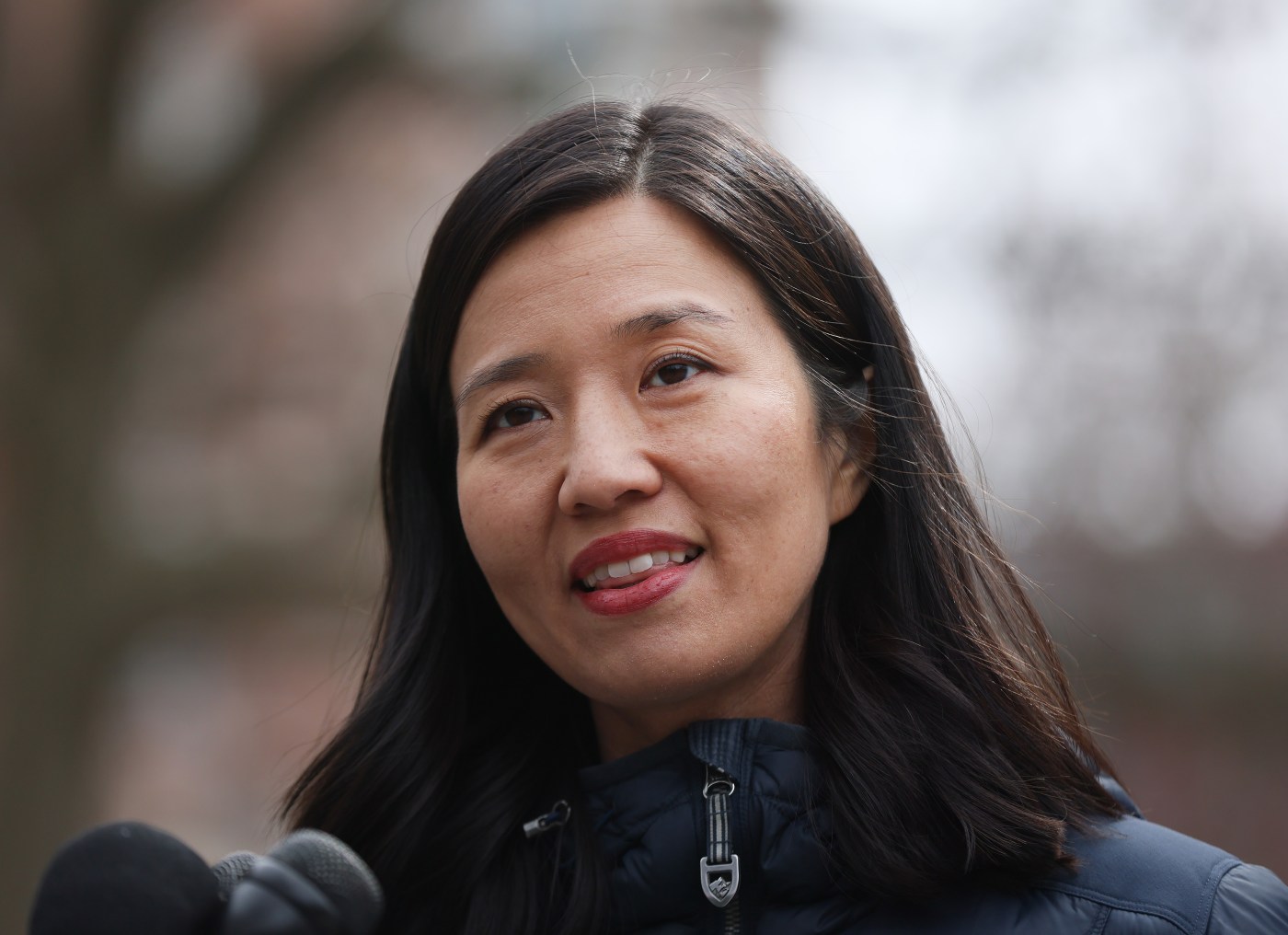
Boston Mayor Wu successfully pushes planning ordinance through City Council over pushback
A mayoral ordinance creating Boston’s first planning department in seven decades divided the City Council but was ultimately approved, marking a major win for the mayor in her larger plans to restructure city development.
The Boston City Council voted, 8-3-2, to approve an amended version of an ordinance put forward by Mayor Michelle Wu in late January, that will move Boston Planning and Development Agency staff and functions, along with some land and money, to the jurisdiction of a new city department.
The vote on the measure, which also gives the council budgetary oversight of the new planning department, an authority it lacks with the current BPDA, came after more than two hours of tense debate. One councilor moved to block the body from taking action Wednesday, saying more time and work was needed on what has proven to be a contentious proposal for both the community and developers.
Critics have stated that the measure as written falls far short of the mayor’s initial plans to abolish the BPDA and move the planning board, which will remain independent and free of council oversight, under the purview of the city.
“Today’s Council vote is a monumental step forward for Boston, creating a city planning department focused on affordability, equity and resilience,” Wu said in a statement after the vote, while thanking councilors “for their partnership.”
Wu’s office said the mayor will be reviewing the final language of the ordinance as passed before signing it into law “in the days ahead.” Staff changes will take effect in the next fiscal year that begins on July 1.
Councilors who voted in support of the ordinance described it as a necessary “first step” of the mayor’s plans to legally restructure the BPDA, a move that is pending on Beacon Hill in the form of a home rule petition Wu got through the Council last spring, which has faced similar pushback to the ordinance that was just passed.
Those councilors also spoke favorably of what the mayor has insisted the ordinance would do, which is to create the “same accountability and oversight as all other city departments.”
“It is the first phase in a multi-phase process to democratize the BPDA and dismantle the status quo,” Councilor Gabriela Coletta, who chaired the government operations committee that oversaw work to amend the ordinance, said. “It is not to stifle development or limit economic growth that is vital to the success of the city.”
Coletta added, “It ensures that those who work in this department as well as the mayor and this council will ultimately be held accountable to the communities that we serve.”
Related Articles
Boston settles for $4.6M in wrongful death lawsuit related to 2016 police shooting of mentally ill Black man
Michelle Wu considering petitioning state for higher commercial tax rates
Councilors not backing down after hearing on their free museum push for all Boston children kicked to August
Boston targeting safety upgrades at intersection where 4-year-old girl killed by truck
Amid budget crunch, Boston looks to update payment program short-changed by tax-exempt nonprofits
The BPDA, in its current form, caters more to the interests of luxury developers, Councilor Liz Breadon said, echoing the thoughts of some of her other colleagues who stated that the planning process in place since the 1960s shuts out community input, which has largely led to the inequities seen in the city’s housing market.
“We are about to put the era of urban development behind us and hopefully we will move into an era of collaboration and engagement with the public to co-create and envision a city of the future for Boston,” Breadon said.
She mentioned, however, the “weak link” that remains from the ordinance, which is the need to “strengthen and have a more robust community process” — referencing what was the biggest point of contention among the councilors who opposed the measure, or at the very least, taking a vote on it Wednesday.
John FitzGerald, who worked for the BPDA before joining the Council in January, had different concerns, saying that the focus should be on fixing the existing agency. The mayor’s “drastic” proposal, he said, would stifle development.
Councilor Ed Flynn raised doubts that the body had the ability to provide effective oversight to hold a restructured BPDA accountable, saying that they lack the “stomach” or the “guts” to ask difficult questions.
At-Large Councilor Julia Mejia was the largest detractor of a planning reform process initiated by the Wu administration that she said has shut out the community.
“I can’t in good conscience pass a piece of legislation that I feel is being steamrolled over community,” Mejia said. “I’m asking my colleagues to consider giving people a voice.”
To that end, Mejia pushed for passage of an amendment that would have created a “commission on accountability and transparency in city planning,” independent of the planning department “to investigate complaints regarding plans approved by the mayor and planning department to ensure that plans further the city’s goals of achieving environmental resilience, equity and affordability.”
The purpose, she said, was to create a commission independent of “political favors” and the “political negotiations” that take place between councilors and the mayoral administration, pointing to what she felt took place prior to the day’s vote on the ordinance in terms of securing the necessary votes for approval.
Coletta opposed the amendment to the final ordinance she drafted, stating that she felt the language she put forward was “stronger,” in designating the Human Rights Commission as an independent oversight authority of the planning department.
Mejia’s amendment was defeated, 9-2-2, as was her push for the council to reconsider Coletta’s motion to approve the amended ordinance, 8-5, which would have sent it back to committee for further debate and required a special meeting to be held by Friday with the mayor’s 60-day ordinance set to take effect Saturday if the council chose to take no action.
“We can’t say that we believe in democracy and continue to kill it,” Mejia said.
Voting in favor of the mayor’s ordinance were Breadon, Coletta, Sharon Durkan, Ruthzee Louijeune, Enrique Pepén, Henry Santana, Benjamin Weber and Brian Worrell. FitzGerald, Flynn and Erin Murphy voted in opposition, while Tania Fernandes Anderson and Julia Mejia voted ‘present.’


